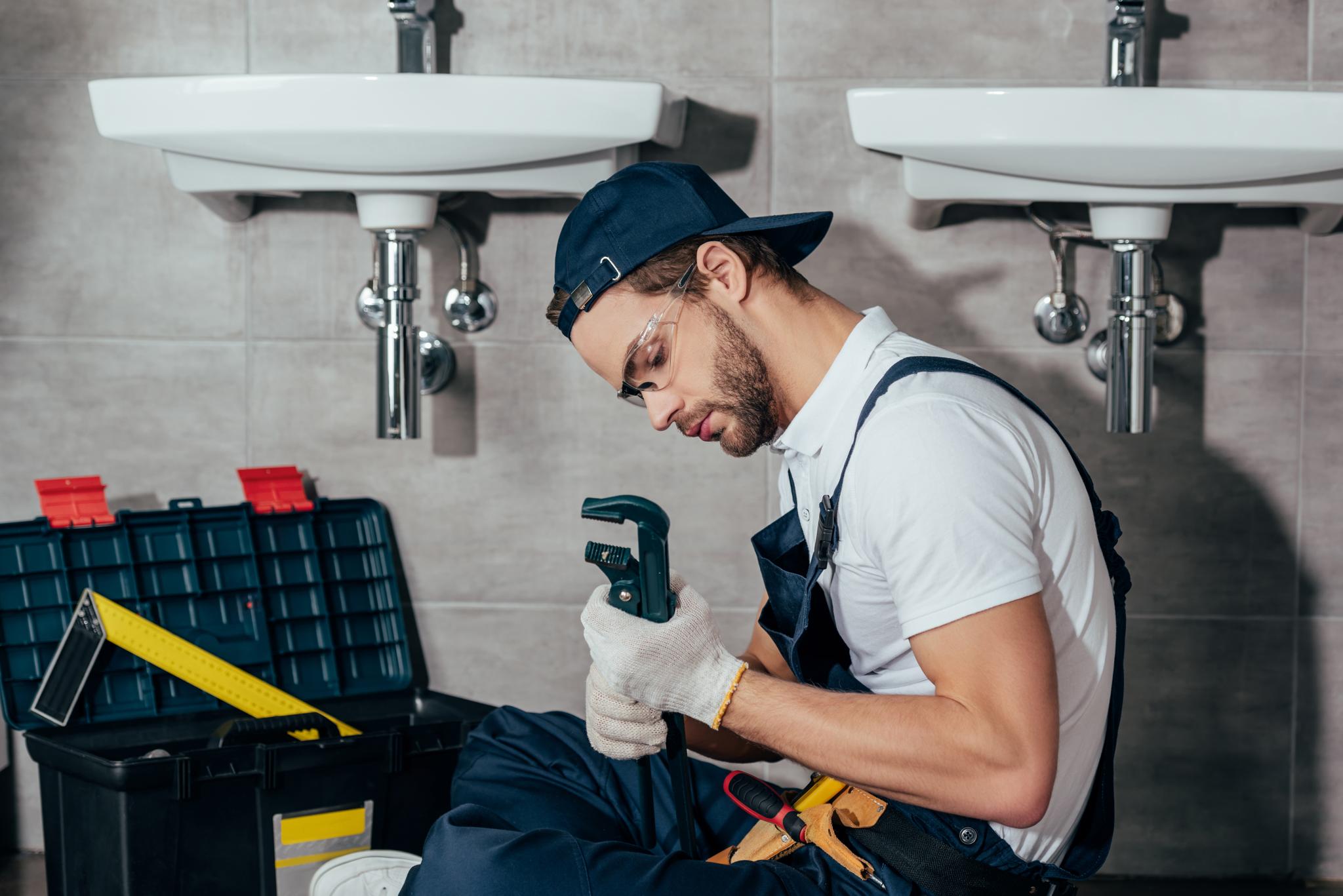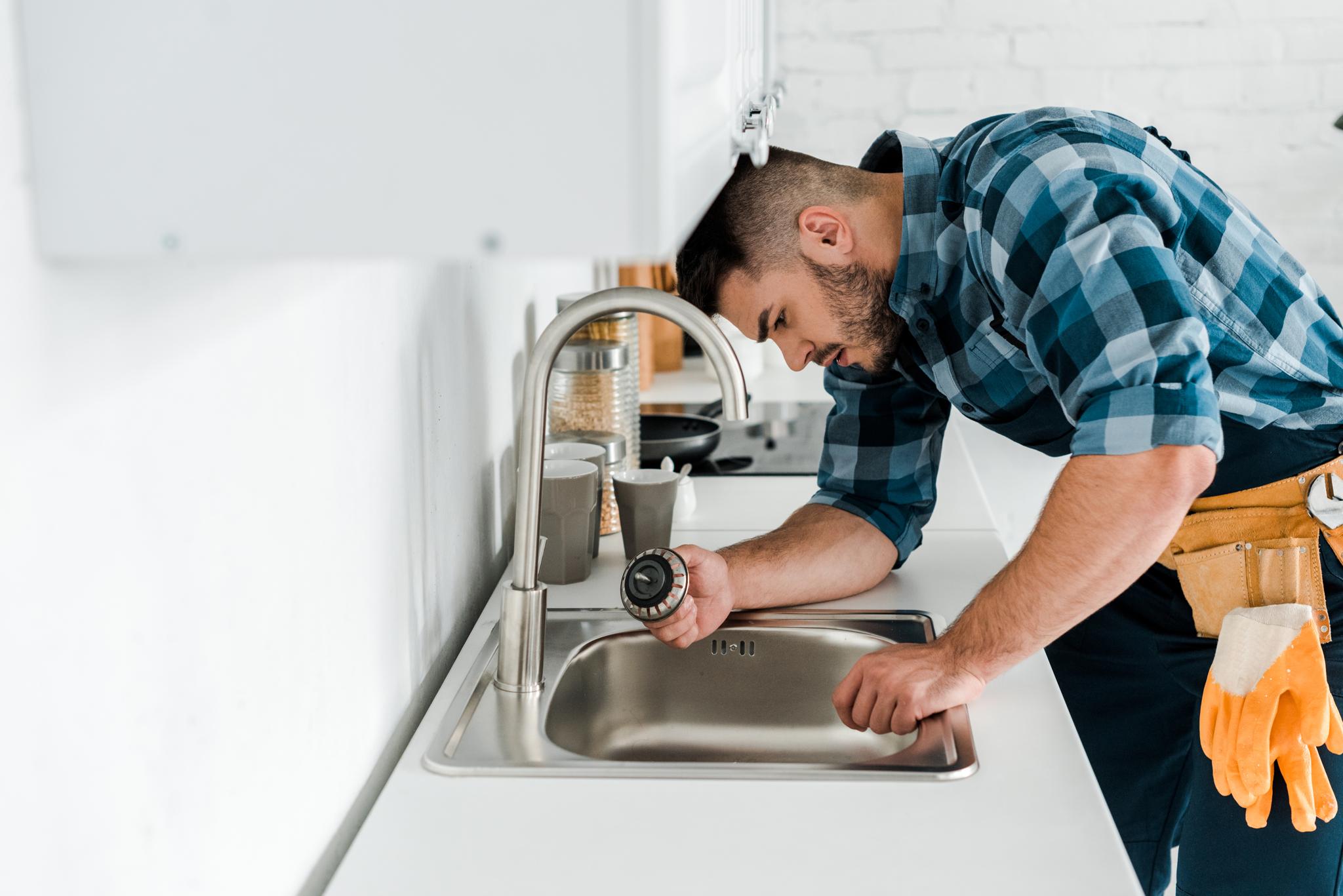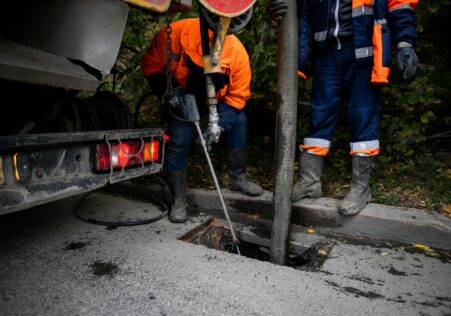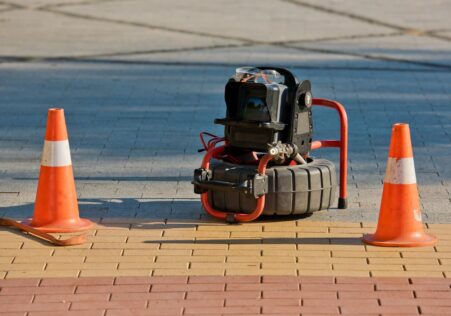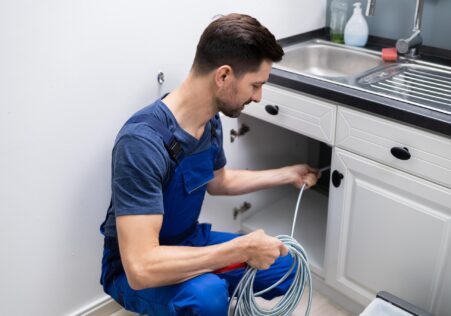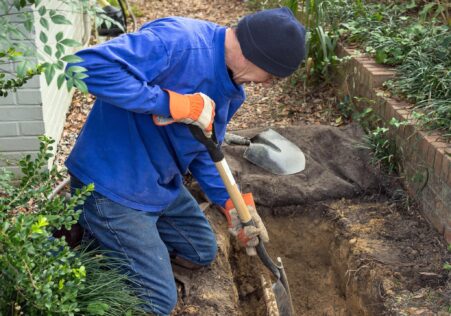What to Do When Your Toilet is Blocked: A Step-by-Step Guide

Toilet blockages can occur at any moment and are a common issue for homeowners. They can be uncomfortable messy and uninspiring and require immediate attention. However, you do not always have to call a plumber right away. In this blog, we will guide you through simple ways to clean your toilet within a matter of minutes.
Key Takeaways
- Toilet blockages can be solved with simple tools and methods such as plungers, baking soda
The tools you’ll need
Before we begin it is essential to be prepared with these tools:
- Rubber Gloves
- Plunger
- Baking Soda and Vinegar (Optional)
- Wire Coat Hanger or Pipe Snake (Optional)
Step 1: Close your water source valve.
The first thing you should do when facing a clogged toilet is turning off the water supply valve on the toilet. This is to ensure that there is no further water entering the tank as you try to get it unclogged. The valve is normally situated at on the floor of your tank on one side.
Step 2: Protect yourself by wearing rubber gloves.
Hands must be protected from germs or bacteria present in your toilet bowl with rubber gloves before making use of any tools to unblock the drain.
Step 3: Use a plunger.
A plunger is without doubt the most efficient tool for getting rid of blocked toilets. Begin by pressing down upon the plunger until air is evacuated from it. then press firmly over the hole in your toilet bowl and start plunging continuously up and down for approximately 20 seconds. The suction caused by plunging back and forth will assist in removing any blockages.
Tips:
- Use a firm but controlled movement.
- Cover holes around sinks or shower drains, if they are near to stop the release of pressure as you plunge.
Step 4: Test baking soda with vinegar.
If you’re not able to get the plunge working then try this alternative method add half a cup of baking soda as well as one tablespoon of vinegar in the bowl. The mixture should sit for about 15 minutes. It may fizz, and when it stops, pour hot water down (not boiling) to clear the blockage.
Step 5: Use a coat hanger that is wire or a plumbing snake.
If plunging, baking soda and vinegar have not worked and you are in need of a solution, it’s time to use a wire coat hanger, or plumbing snake. The coat hanger should be straightened’s cable until you have a long thin wire that has hooks that are bent on one side or to use the plumbing snake, which is specially designed to clear drain obstructions. Place the snake into the drain hole of your toilet and then twist, turn, push and pull till you experience a resistance. that’s where the blockage usually is. Try to break up the blockages by using a back and forth motion but without causing any damage to your drainpipe.
Note:
- Do not overdo pulling or pushing actions as they could make things worse
Step 6: Switch on the water supply and test the result
Once you’ve cleared up any obstructions, it’s crucial to turn off the supply of water on your toilet. You should flush it a couple of times to make sure all water flows smoothly now!
| Tools | Description |
|---|---|
| Rubber Gloves | Hand protection from potential bacteria or germs present in the toilet bowl. |
| Plunger | Most effective tool for clearing up blocked toilets. Press firmly over the hole in your toilet bowl and plunge vigorously up and down for about 20 seconds. |
| Baking Soda and Vinegar | Mixture to use if plunging doesn’t work. Pour half a cup of baking soda and one cup of vinegar into the toilet bowl. Let this mixture settle for about 15 minutes, then pour hot water down (not boiling) to flush out the blockage. |
| Wire Coat Hanger or Plumbing Snake | Tools to use if both plunging and baking soda/vinegar methods have failed. Straighten the wire coat hanger until you have a long thin wire with a hook bent at one end or use the plumbing snake, which is designed specifically for clearing drain clogs. |
FAQs
How can I tell when my toilet has become blocked?
One of the most frequent symptoms of a blocked toilet is when the water fills up to the top of the toilet after flushing. You might also notice that water drains away slowly or you hear the sound of gurgling through the toilet.
What can I do if my toilet is blocked?
If you believe the toilet is clogged, avoid trying to flush it in the future as this could cause flooding. Instead, shut off the supply of water to the valve that is behind the toilet, and use a plunger to try to eliminate any blockages. If that doesn’t work contact Sydney Plumber Blocked Drains for professional help.
Can I prevent my toilet from getting blocked?
Yes! There are a variety of options to stop your toilet from getting blocked, including avoiding flushing non-degradable products like toiletries, wet wipes or cotton wool down the toilet. You should also avoid spilling oil or grease down the drain, which could cause solidification and cause blockages to pipes.
When should I contact a professional plumber to resolve a toilet that has become blocked?
If you’ve tried splurging your toilet but it still doesn’t clear or you believe there’s a bigger issue with your plumbing system causing frequent blockages, you need to contact an experienced professional plumber such as Sydney Plumber Blocked Drains . We’ve got years of experience with every kind of plumbing issue that we can quickly detect and fix any issues with minimal disruption to your home.
When should I get my drains cleared?
It is recommended to have your drains cleaned by a professional such as Sydney Plumber Blocked Drains every 1-2 years. This will prevent obstructions and keep your plumbing system in good working order. However, if you frequently have problems with drains blocking or slow drainage of water despite making sure you are taking steps to prevent clogging them, then cleaning your drains every year would be beneficial.
These methods are relatively easy to carry out and the majority of these items are available in households. When facing blocked toilets before worrying after trying the methods, contact Sydney Plumber Blocked Drains ‘s expert plumbers located in Sydney , if you’re in search of professional assistance for problems with your blocked toilets.
Additional Information
- Natural Methods for Keeping Your Shower Drain Free of Blockages
- The Ultimate Checklist for a Smooth-flowing CCTV Drain Inspection Experience
- Avoiding Clogged Drains: Tips for Homeowners
- Blocked Drain Emergency? Here’s What You Need to Know About DIY vs. Professionals
- Cut Costs and Hassle with Trenchless Pipe Replacement for Condos
- The Advantage of CCTV Drain Inspection in Detecting Root Infiltration Early
- The Dangers of Using Chemical Drain Unblockers
- Save Future Expenses with CCTV Drain Inspection for Home Buyers
- CCTV Drain Inspection Technology: Detecting Corrosion in Sewer Pipes
- Uncovering Hidden Damage with a Professional CCTV Drain Inspection


